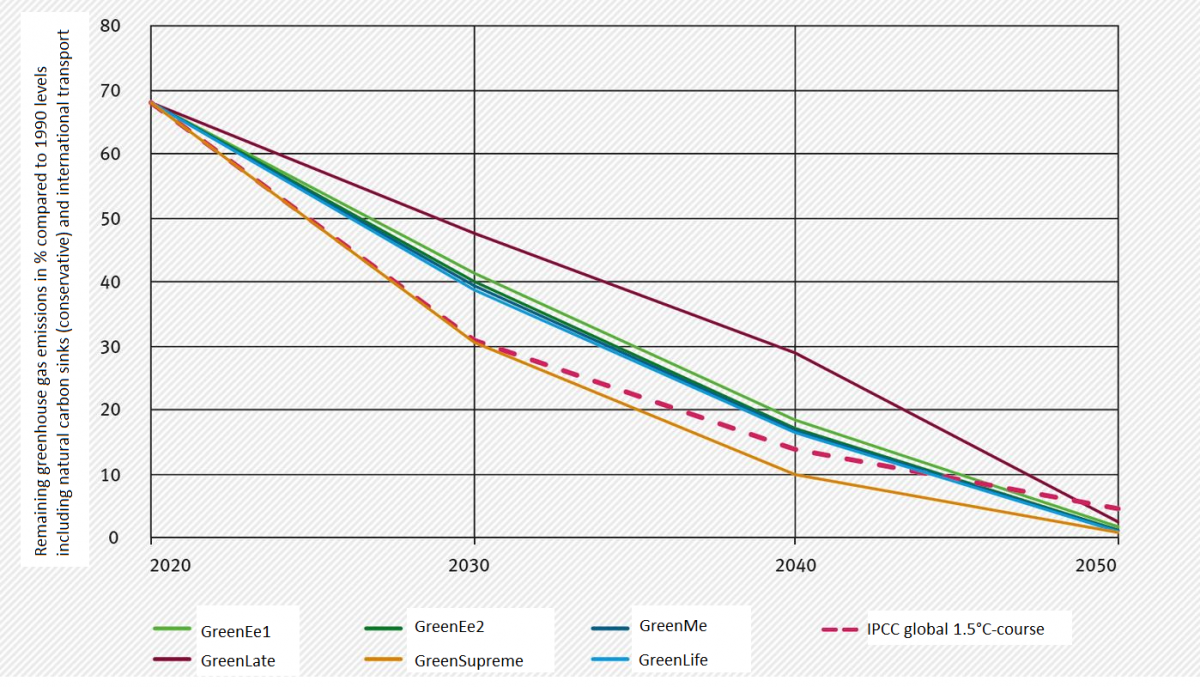Study says Germany can achieve 2050 climate neutrality without nuclear and CCS
Clean Energy Wire
Achieving a 100-percent reduction of greenhouse gas emissions by 2050 is possible for Germany without relying on controversial technology like nuclear power and carbon capture and storage (CCS), the Federal Environment Agency (UBA) has found. In its RESCUE study, the UBA looked at six different scenarios for Germany to achieve climate neutrality and cutting its resource needs by up to 70 percent. It found that under the most optimistic one, dubbed "GreenSupreme”, a reduction of 97 percent to more than 100 percent is possible if all CO2 reduction and natural absorption potentials are exploited. "Measures agreed on so far are not at all sufficient for that," UBA head Maria Krautzberger said. She said society as a whole had to "totally change certain habits" and quickly adapt new technologies and production procedures. Krautzberger stressed that the UBA study did not assess the economic viability of each scenario. She also added that an international perspective was necessary to make the analysis more meaningful. Under the GreenSupreme scenario, Germany's energy demand would fall from about 2,500 terawatt hours (TWh) in 2015 to less than 1,100 TWh in 2050 and be covered completely by renewable sources. Moreover, e-cars, Power-to-X and energy and resource-efficient technology are widespread under the scenario and domestic air travel, as well as motorised individual transport in cities, have largely been replaced by more climate-friendly alternatives.
The German government's recent Climate Action Programme is spelling out ways to achieve Germany's 2030 climate target, which stipulates a reduction of CO2 emissions of 55 percent compared to 1990 levels but has been widely criticised for not being forceful enough. German Chancellor Angela Merkel has said that Germany would strive to reach neutrality by the middle of the century but a recent study by research centre FZ Jülich found that a clear specification of the target is necessary to achieve a cost-efficient transition.


